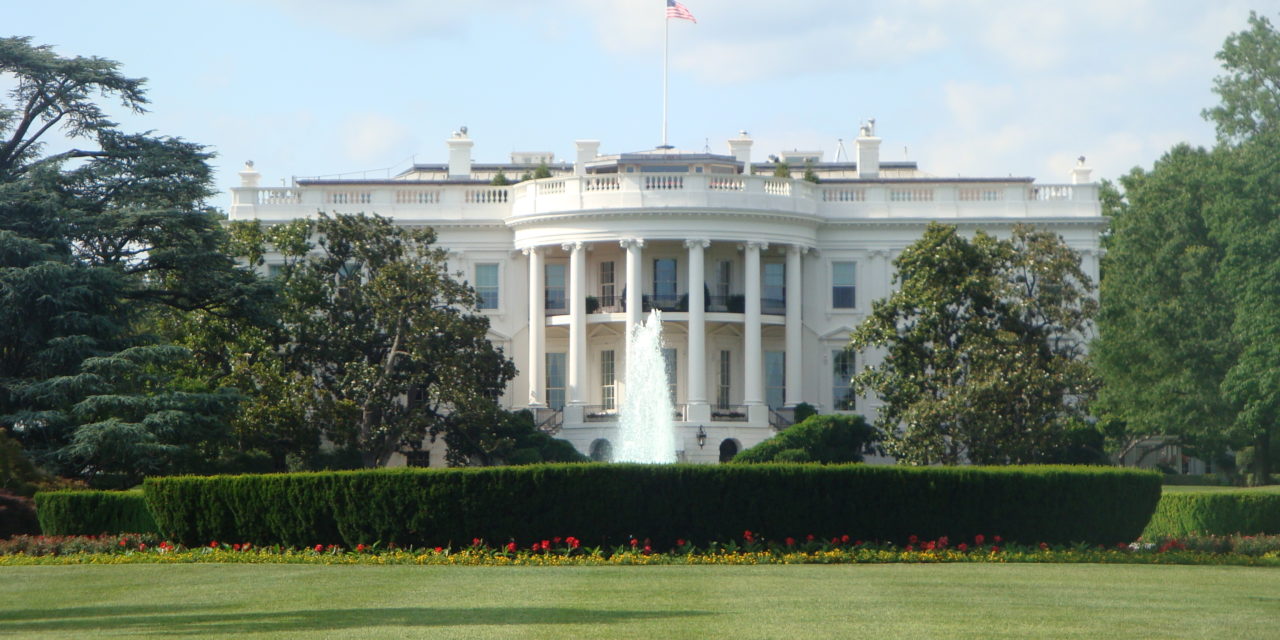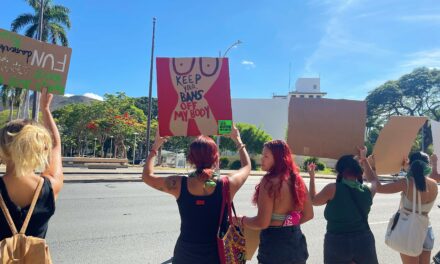By Chris Takahashi | Staff Writer
In the aftermath of Trump’s inauguration on Jan. 20, White House press secretary Sean Spicer quickly went on the offensive for the nascent Trump administration. Speaking at his first press conference the very next day, Spicer accused the free press of “deliberately false reporting” the crowd size at Trump’s inauguration.
Spicer contended that the event brought forth the “largest audience to ever witness an inauguration, period.”
Spicer went so far as to claim that statistics for daily metro ridership in D.C. during Trump’s inauguration far exceeded those from the past Obama inauguration crowds. Spicer’s statistics were patently untrue, at least according to official statistics from the Washington Metropolitan Area Transit Authority (WMATA). Defending Spicer’s remarks, advisor Kellyanne Conway spoke to NBC’s Chuck Todd and proposed that the “alternative facts” presented by Spicer were unequivocally true.
And, in the most recent White House press conference held on Thursday, Feb. 16, Trump used the phrase “fake news” at least a dozen times in response to the resignation of National Security Advisor (NSA) Michael Flynn and disclosure of leaked classified information between the U.S. and Russia.
It has been just one full month since Trump took office, and while the eccentricity he brings to the White House is welcomed by supporters, the rest of his act can be defined in the context of a political neophyte on the international stage, according to KCC and UH political experts.
“We’re going to see this as a period of divisiveness and as an era in which America was clearly divided,” said KCC History professor Julie Rancilio. “Whether that division is ultimately going to turn out to create more chaos or whether at some point we can overcome that divisiveness, I think we’re also going to remember it as a period in which you shouldn’t ever underestimate anyone.”
Campaign promises to Oval Office action
KCC Political Science professor Joe Overton specializes in International Affairs with a concentration in Middle East Politics. He is also the director of the International Honda Center. In listening to Trump’s campaign promises and rhetoric since taking office, Overton cautioned against Trump’s credibility.
“You can make as many claims as you want (during the election), because you don’t have to back them up … unless you become president,” Overton said last week.
When it comes to campaign promises, Trump was particularly resolute on solving the challenge of illegal immigration. Trump pledged to build a wall along the southern border of the U.S. and Mexico, and, if he were to be elected, Trump assured the country that he would personally ensure that Mexico be responsible for the cost of construction.
“I would build a great wall, and nobody builds walls better than me, believe me, and I’ll build them very inexpensively —I will build a great, great wall on our southern border,” Trump said on the campaign trail. “And I will have Mexico pay for that wall. Mark my words.”

Donald Trump campaigned on a slogan of “Make America Great Again.”
Enrique Peña, president of Mexico, has repeatedly stated that Mexico will in fact not pay for the wall. Peña cancelled his meeting with Trump scheduled to take place back on Tuesday, Jan. 31.
Trump also suggested, in addition to the construction of the border wall, that the U.S. would exact revenge on the lopsided trade deficit (which favors Mexico) by increasing fees on visas and entry fees; impounding remittance payments that come from “under the table” cash jobs; and enacting border taxes and tariffs against Mexican imports to pay for the construction of the wall.
Throughout the campaign season, chants of “build that wall!” could be heard at Trump rallies. It appeared that the chant struck a personal chord for many of the participants.
Rancilio, who’s been teaching at KCC for 13 years, suggested that “(Trump is) equating illegal immigration with this idea that they’re stealing American jobs.”
The estimated price tag for the construction of a southern border wall is somewhere between $15 billion and $25 billion, according to a late-January estimate from Marc Rosenblum, deputy director of the U.S. Immigration Policy Program at the Migration Policy Institute.
Last year in February, Trump told MSNBC that he could build the wall for a mere $8 billion.
Peña recently took to Twitter and denounced Trump’s ambitions for a Mexico-financed border wall. In a Twitter video clip translated from Spanish by CNN, Pena admonished Trump, “Mexico does not believe in walls. I’ve said time again; Mexico will not pay for any wall.”
“The wall is not going to keep Mexicans out,” Overton said. “As a matter of fact, there are more Mexicans going into Mexico than coming into the United States.”
Trump on executive orders, international diplomacy
Perhaps the most noteworthy executive action signed by President Trump was Executive Order 13769 on Jan. 27. This order has informally been deemed the “Muslim ban” as it prohibits travel into the United States for residents from the following, largely Muslim countries: Iraq, Iran, Libya, Somalia, Sudan, Syria, and Yemen.
Due to the curious nature of the ban, in which no nation state listed above can claim participants in the 9/11 terrorist attacks (an incident repeatedly referenced by Trump as a basis for the “Muslim ban”), the order was met by protests in the street and at airports across the globe. A federal district judge blocked key parts of the executive order, a decision which was later affirmed by a three-judge panel with the U.S. Court of Appeals.
“Do you really think that person is qualified to run the economy or to do anything that is foreign? I’d love to give him a map of the Middle East to see if he could identify the countries,” Overton said recently and laughed.
Many international students with legal green cards were caught in the crossfire of the travel ban. Though the federal appeals court upheld the suspension of the executive order, Trump recently announced that he will issue a new executive order to circumvent the existing, court-challenged order.
“Ignoring all of those checks and balances is clearly demonstrative of fascism,” Rancilio said.
Given that illegal immigration and “extreme vetting” were mainstays of Trump’s campaign promises, it is unlikely he will concede the cause without another protracted legal battle.
This concerns Overton, who oversees the Honda International Center and spends time overseas attracting international students to KCC.
“I think it will be harmful in attracting international students to KCC,” Overton said. “You’ll have students that don’t want to come here due to what they perceive as anti-immigrant policy.”
Nominating an executive cabinet
One significant privilege bestowed upon presidents is their power to nominate appointees to various cabinet positions. So far, controversial picks like Education’s Betsy DeVos, EPA’s Scott Pruitt and Treasury’s Steven Mnuchin have successfully navigated contentious confirmation processes.
“(Trump) said in his campaign that he wanted to shake up the system … but he may have made a mistake in appointing some people who are ideologues that don’t know a whole lot about the bureaucracies they’re going to soon run,” said Colin Moore, a UH Mānoa Political Science professor and director of the UH Public Policy.
One cabinet pick that angered many who work in public education was the recent nomination of Betsy DeVos for secretary of the Department of Education (DOE). DeVos is an ardent supporter of school choice and voucher programs; she is also deeply religious and has previously described her approach to education reform as a way for her to “advance God’s kingdom.”
The appointment of DeVoss, who passed the Senate with a historic 50-50 tie that was broken by Vice President Mike Pence, is disconcerting to Overton.
“You have a new secretary of Education that is against public education,” he said. “A lot of students depend on Pell grants and other kinds of financial aid from the federal government. What happens to that kind of money for colleges and universities?”
Another cabinet nominee that has raised some alarm, especially for those that would like to see more stringent environmental regulation, is Scott Pruitt, the new administrator of the Environmental Protection Agency (EPA) and former attorney general of Oklahoma. Pruitt, who has previously enjoyed a cozy relationship with the fossil fuel industry in terms of campaign donations, sued the EPA 13 times since 2011, all during his time as Oklahoma attorney general, according to an article from the publication Mother Jones.
With Pruitt at the helm of the EPA and Trump’s publicly stated dislike of clean energy and preference for increased domestic drilling of oil, coal, and gas, the climate movement faces an uphill battle.
“When it comes to clean energy, technological and market forces have taken hold,” said Patrick Doyle, a master’s candidate in Environmental Policy at Bard College who previously worked for the EPA in Washington, D.C. “Wind and solar energy are now competitive with traditional energy sources. Repealing federal support (subsides, tax incentives, etc.) may slow investment, but won’t reverse the long-term trajectory of clean energy’s growing energy share in the U.S. In short, it’ll take a lot more than President Trump’s 140-character thinking to derail renewables.”
Not all of Trump’s cabinet picks have been confirmed by passing votes in the Senate. The departments of Commerce and Energy, just to name a few, are all awaiting Senate votes. Andrew Puzder, the nominee for Labor, withdrew from the position after it appeared he would not be confirmed by the Senate.
“The transition was a very messy process,” Moore said. “They were not as well prepared as past administrations. They took quite a long time to send to Congress their appointees.”
Political ideology
“I think my biggest concern is the fact that Trump is totally unpredictable,” Overton said. “You don’t know what he is going to say, you don’t know what he is going to do. And, the fact that he lacks any real background knowledge on anything foreign. One of his chief advisers is (former Breitbart executive chairman Steve) Bannon, whose philosophy is the apocalypse. This type of person is frightening.”
In a glimmer of hope for progressive individuals, the adoption of a historically more conservative political strategy, i.e. states’ rights, may shift political power to predominantly liberal states.
“The states’ rights movement is something that really started with conservative southern states in their opposition to the civil rights era legislation,” Moore said. “The states’ rights tactics and rhetoric that have been championed by the right are now being used by the left, by big blue states such as California, Washington, New York. I think you’ll see a lot more.”






